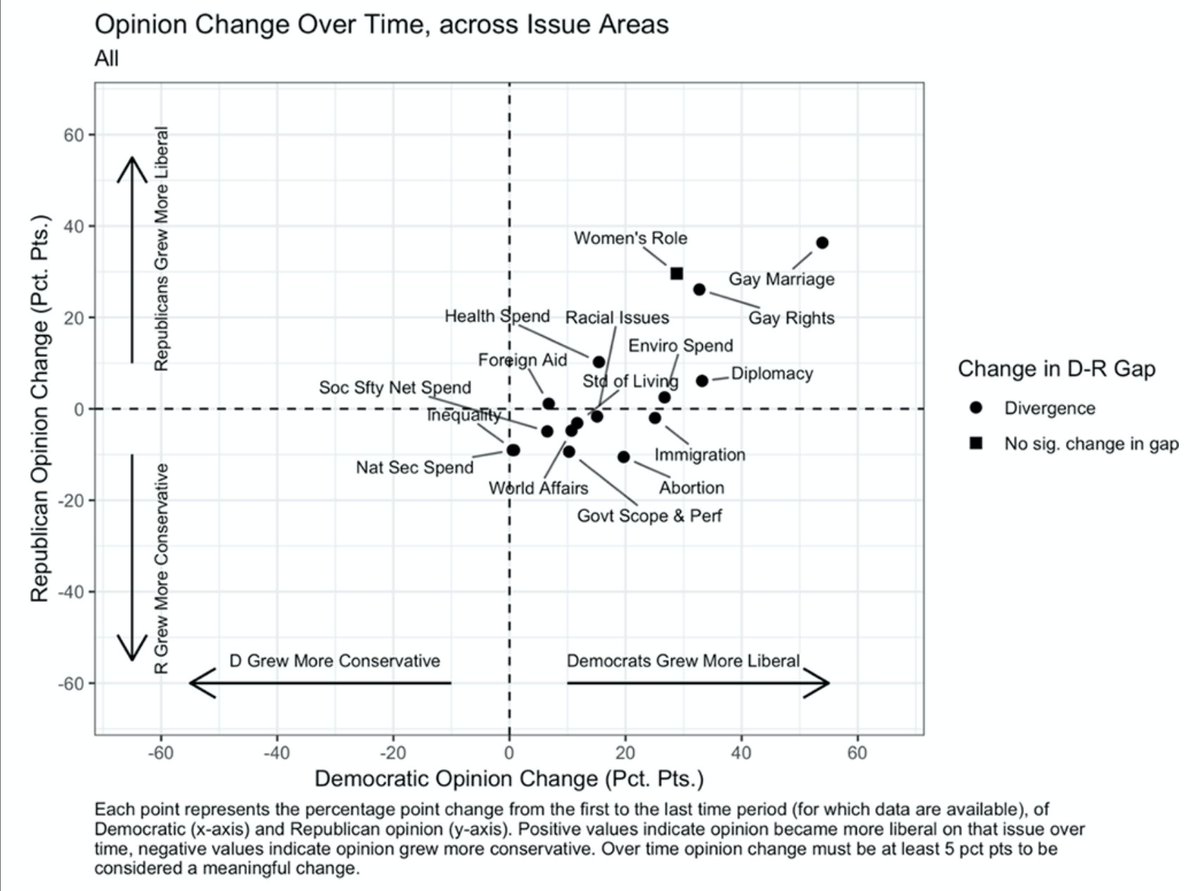
1/n The ANES hadn't asked this question since '08. It was finally included in the 2020 survey, though, so here's an updated chart 
https://twitter.com/ZachG932/status/1153524021801181184?s=20

2/n In 1996, just under 9% of white liberals supported decreased spending on border security. This figure jumped to ~29% in 2008. It now sits at ~54%.
3/n Meanwhile, conservatives have hardly moved an inch (and this is generally the case in other measures of immigration policy attitudes I've looked at)
4/n I will add some graphs by party in a bit.
5/n Though the attitudes of both have moved in a liberal direction, White Dems are now significantly more likely than non-white Dems to favor decreased border spending (45% vs. 32%), and significantly less likely to favor increased spending (13% vs. 28%). 

6/n Once again, little to no net movement among White Republicans.
7/n In 2012, 13% of white liberals favored unconditional amnesty (i.e. no paying back taxes, no fines, no learning english etc.) for illegal immigrants. This figure grew to 20% in 2016 and to 37% in 2020. 

• • •
Missing some Tweet in this thread? You can try to
force a refresh










